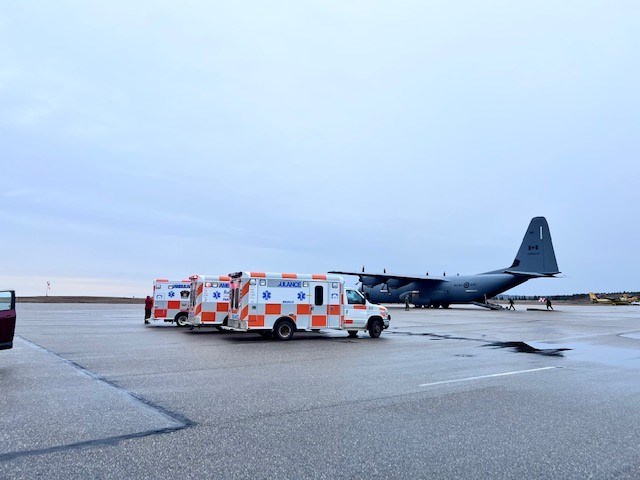After Pikangikum’s First Nation’s only medical transport vehicle became inoperable, the Independent First Nations Alliance and Kenora District Services Board were able to provide the community with two decommissioned ambulances.
The ambulances were airlifted by the Canadian Armed Forces to Pikangikum last month.
Nick Rhone, IFNA's director of integrated emergency service, said just the week before the ambulances arrived an elder expressed to him that he was praying in his lifetime he would see Pikangikum receive proper medical equipment.
“He believed he had seen cases, in his opinion, where people had died because they were transported improperly,” said Rhone.
Although the decommissioned ambulances provided by the Kenora District Services Board aren’t completely up-to-date, community members in need of medical transport will have access to a vehicle that is shielded from the elements.
“If you can imagine it, sometimes you have a patient in a stretcher, in the back of a pickup truck with the tailgate open, and you have police officers and community members trying to hold onto the patient while rendering medical assistance, whether it was -30 C or rain just sitting in the back of a pickup truck waiting on medical attention,” Rhone said.
Having these ambulances operating in Pikangikum will improve safety in the community, but Rhone said the next step is to bring medical services across all First Nations up to provincial standards.
“The situation was so dire that even a hand-me-down ambulance improves safety drastically. I think the next step is how do we work to ensure proper equity where the same type of equipment, standards, and funding is available,” said Rhone.
Kenora District Services Board CAO Henry Wall agreed with Rhone’s assessment of the importance of ensuring that there is equity between the province and First Nations communities.
Wall has said that the timely manner in which the ambulances were provided was because of their partnership and understanding that everyone deserves adequate medical equipment.
“It’s important to know that as KDSB we’ll do what is necessary to support all of our communities, and not be hung up on jurisdiction. We know that in a state of crisis we need to support one another," Wall said.
"Like poverty and homelessness, those things don’t respect jurisdiction whether it’s a federal issue, a provincial issue, or a municipal issue, we are all in this together. I think that just goes back to just being good neighbours."
